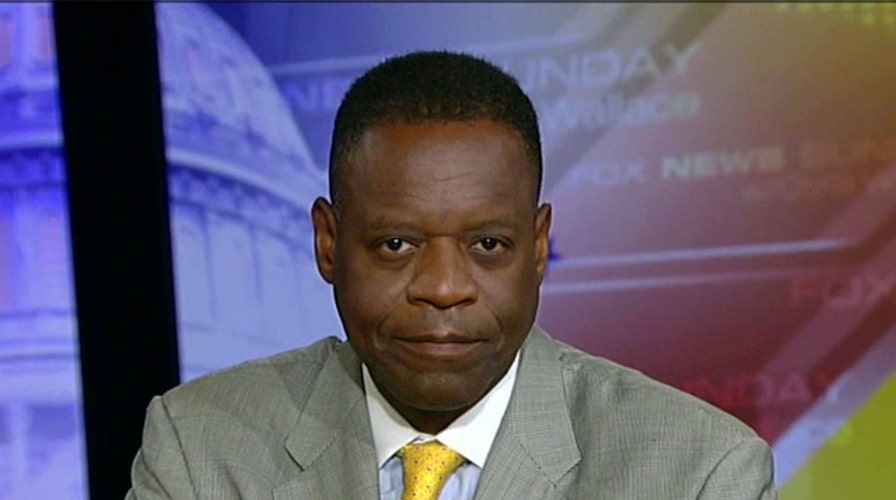Michigan Gov. Rick Snyder and the bankruptcy specialist he appointed to fix Detroit’s unprecedented financial problems put the blame Sunday squarely on the city and defended their decision to file for Chapter 9.
The Republican governor said Detroit created the problems and stood steadfast behind his decision to file Thursday for bankruptcy, with the city roughly $19 billion in debt.
“This is a tragic, difficult decision, but a right one,” he told CBS' "Face the Nation." “It’s not about just more money, it’s about accountable government.”
He said corruption and city leaders ignoring warning signs for 60 years contributed to the problems. Among his biggest concerns, Snyder said, is the decline of municipal services for Detroit’s remaining 700,000 residents, including police response times of nearly one hour.
Snyder said the state cannot help and asking for a federal bailout is “not the right answer,” though Washington has that option.
The Obama administration has extended no offer to help, after Congress and the White House agreed to bail out Chrysler and General Motors during the recent recession.
“Can we help Detroit? We don’t know,” Vice President Joe Biden said last week. His remarks followed White House Press Secretary Jay Carney appearing to rule out such assistance.
“That's something that local leaders and creditors are going to have to resolve,” he said. “But we will be partners in an effort to assist the city and the state as they move forward.”
Among the emerging concerns is that the federal government would have to help repeatedly, considering Chicago reportedly has an unfunded pension liability of at least $19 billion while Los Angeles’ is estimate to be as much as $30 billion.
“There are a lot of other cities right behind Detroit,” Republican strategist Ron Bonjean told Fox News on Sunday.
Kevyn Orr, the emergency manager and bankruptcy lawyer appointed by Snyder, made comments similar to the governor’s on Sunday but avoided questions about a possible government bailout.
“This is the only way,” he told “Fox News Sunday.” “We were compelled to file for bankruptcy.”
Orr said his goal is to restructure the debt, including roughly $3.5 million in underfunded pension liabilities, and to get Detroit on its feet again by fall 2014.
He also said he has appealed a judge’s ruling Friday that the bankruptcy violates Michigan's constitution, which protects government employees' pensions.
Orr also said that his plan would extend full payments only to pensioners for the next six months and acknowledge the hardship it will cause.
“This is very personal to me,” he said. “My mother is a pensioner.”
Still, he said Detroit “dug this hole,” in part by not addressing its problems earlier.
With a population of 1.8 million in the 1950s, Detroit’s slow decline started with residents migrating to the suburbs in the 1960s and was accelerated by automakers leaving Detroit, which diminished the city’s tax base and made it difficult for officials to provide basic services such as police protection.
The filing makes the city the largest in the United States to file for bankruptcy.
Orr also defended criticism from the financial sector, saying potential investors will look at an improved Detroit, not the old one.
I remember when people said “nobody will ever buy a car from a bankrupt automaker,” Orr said.





